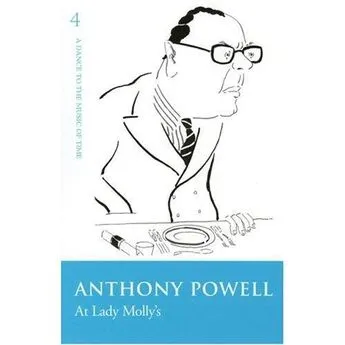Anthony Trollope - Autobiography of Anthony Trollope
- Название:Autobiography of Anthony Trollope
- Автор:
- Жанр:
- Издательство:неизвестно
- Год:неизвестен
- ISBN:нет данных
- Рейтинг:
- Избранное:Добавить в избранное
-
Отзывы:
-
Ваша оценка:
Anthony Trollope - Autobiography of Anthony Trollope краткое содержание
EBook of Autobiography of Anthony Trollope by Anthony Trollope (www.anthonytrollope.com)
Autobiography of Anthony Trollope - читать онлайн бесплатно ознакомительный отрывок
Интервал:
Закладка:
it is for him to show, as he carries on his tale, that his Lydia,
or his Leicester, or his Beatrix, will be dishonoured in the estimation
of all readers by his or her vices. Let a woman be drawn clever,
beautiful, attractive,--so as to make men love her, and women
almost envy her,--and let her be made also heartless, unfeminine,
and ambitious of evil grandeur, as was Beatrix, what a danger is
there not in such a character! To the novelist who shall handle it,
what peril of doing harm! But if at last it have been so handled
that every girl who reads of Beatrix shall say: "Oh! not like
that;--let me not be like that!" and that every youth shall say:
"Let me not have such a one as that to press my bosom, anything
rather than that!"--then will not the novelist have preached his
sermon as perhaps no clergyman can preach it?
Very much of a novelist's work must appertain to the intercourse
between young men and young women. It is admitted that a novel
can hardly be made interesting or successful without love. Some few
might be named, but even in those the attempt breaks down, and the
softness of love is found to be necessary to complete the story.
Pickwick has been named as an exception to the rule, but even
in Pickwick there are three or four sets of lovers, whose little
amatory longings give a softness to the work. I tried it once with
Miss Mackenzie, but I had to make her fall in love at last. In this
frequent allusion to the passion which most stirs the imagination
of the young, there must be danger. Of that the writer of fiction
is probably well aware. Then the question has to be asked, whether
the danger may not be so averted that good may be the result,--and
to be answered.
respect the necessity of dealing with love is advantageous,--advantageous
from the very circumstance which has made love necessary to
all novelists. It is necessary because the passion is one which
interests or has interested all. Every one feels it, has felt it,
or expects to feel it,--or else rejects it with an eagerness which
still perpetuates the interest. If the novelist, therefore, can
so handle the subject as to do good by his handling, as to teach
wholesome lessons in regard to love, the good which he does will
be very wide. If I can teach politicians that they can do their
business better by truth than by falsehood, I do a great service;
but it is done to a limited number of persons. But if I can make
young men and women believe that truth in love will make them
happy, then, if my writings be popular, I shall have a very large
class of pupils. No doubt the cause for that fear which did exist
as to novels arose from an idea that the matter of love would be
treated in an inflammatory and generally unwholesome manner. "Madam,"
says Sir Anthony in the play, "a circulating library in a town is
an evergreen tree of diabolical knowledge. It blossoms through the
year; and depend on it, Mrs. Malaprop, that they who are so fond of
handling the leaves will long for the fruit at last." Sir Anthony
was no doubt right. But he takes it for granted that the longing
for the fruit is an evil. The novelist who writes of love thinks
differently, and thinks that the honest love of an honest man is
a treasure which a good girl may fairly hope to win,--and that if
she can be taught to wish only for that, she will have been taught
to entertain only wholesome wishes.
I can easily believe that a girl should be taught to wish to love
by reading how Laura Bell loved Pendennis. Pendennis was not in
truth a very worthy man, nor did he make a very good husband; but
the girl's love was so beautiful, and the wife's love when she became
a wife so womanlike, and at the same time so sweet, so unselfish,
so wifely, so worshipful,--in the sense in which wives are told
that they ought to worship their husband,--that I cannot believe
that any girl can be injured, or even not benefited, by reading of
Laura's love.
There once used to be many who thought, and probably there still
are some, even here in England, who think that a girl should hear
nothing of love till the time come in which she is to be married.
That, no doubt, was the opinion of Sir Anthony Absolute and of Mrs.
Malaprop. But I am hardly disposed to believe that the old system
was more favourable than ours to the purity of manners. Lydia
Languish, though she was constrained by fear of her aunt to hide
the book, yet had Peregrine Pickle in her collection. While human
nature talks of love so forcibly it can hardly serve our turn
to be silent on the subject. "Naturam expellas furca, tamen usque
recurret." There are countries in which it has been in accordance
with the manners of the upper classes that the girl should be brought
to marry the man almost out of the nursery--or rather perhaps out
of the convent--without having enjoyed that freedom of thought
which the reading of novels and of poetry will certainly produce;
but I do not know that the marriages so made have been thought to
be happier than our own.
Among English novels of the present day, and among English
novelists, a great division is made. There are sensational novels
and anti-sensational, sensational novelists and anti-sensational,
sensational readers and anti-sensational. The novelists who are
considered to be anti-sensational are generally called realistic.
I am realistic. My friend Wilkie Collins is generally supposed
to be sensational. The readers who prefer the one are supposed to
take delight in the elucidation of character. Those who hold by
the other are charmed by the continuation and gradual development
of a plot. All this is, I think, a mistake,--which mistake arises
from the inability of the imperfect artist to be at the same time
realistic and sensational. A good novel should be both, and both in
the highest degree. If a novel fail in either, there is a failure
in art. Let those readers who believe that they do not like
sensational scenes in novels think of some of those passages from
our great novelists which have charmed them most:--of Rebecca in
the castle with Ivanhoe; of Burley in the cave with Morton; of the
mad lady tearing the veil of the expectant bride, in Jane Eyre; of
Lady Castlewood as, in her indignation, she explains to the Duke
of Hamilton Henry Esmond's right to be present at the marriage of
his Grace with Beatrix;--may I add of Lady Mason, as she makes her
confession at the feet of Sir Peregrine Orme? Will any one say that
the authors of these passages have sinned in being over-sensational? No
doubt, a string of horrible incidents, bound together without truth
in detail, and told as affecting personages without character,--wooden
blocks, who cannot make themselves known to the reader as men
and women, does not instruct or amuse, or even fill the mind with
awe. Horrors heaped upon horrors, and which are horrors only in
themselves, and not as touching any recognised and known person,
are not tragic, and soon cease even to horrify. And such would-be
tragic elements of a story may be increased without end, and
without difficulty. I may tell you of a woman murdered,--murdered
in the same street with you, in the next house,--that she was a
wife murdered by her husband,--a bride not yet a week a wife. I may
add to it for ever. I may say that the murderer roasted her alive.
There is no end to it. I may declare that a former wife was treated
with equal barbarity; and may assert that, as the murderer was led
away to execution, he declared his only sorrow, his only regret
to be, that he could not live to treat a third wife after the same
fashion. There is nothing so easy as the creation and the cumulation
of fearful incidents after this fashion. If such creation and cumulation
be the beginning and the end of the novelist's work,--and novels have
been written which seem to be without other attractions,--nothing
can be more dull or more useless. But not on that account are we
averse to tragedy in prose fiction. As in poetry, so in prose, he
who can deal adequately with tragic elements is a greater artist
and reaches a higher aim than the writer whose efforts never carry
him above the mild walks of everyday life. The Bride of Lammermoor
is a tragedy throughout, in spite of its comic elements. The life
of Lady Castlewood, of whom I have spoken, is a tragedy. Rochester's
wretched thraldom to his mad wife, in Jane Eyre, is a tragedy.
But these stories charm us not simply because they are tragic, but
because we feel that men and women with flesh and blood, creatures
with whom we can sympathise, are struggling amidst their woes. It
all lies in that. No novel is anything, for the purposes either
of comedy or tragedy, unless the reader can sympathise with the
characters whose names he finds upon the pages. Let an author so
tell his tale as to touch his reader's heart and draw his tears,
and he has, so far, done his work well. Truth let there be,--truth
of description, truth of character, human truth as to men and
women. If there be such truth, I do not know that a novel can be
too sensational.
I did intend when I meditated that history of English fiction to
include within its pages some rules for the writing of novels;--or
I might perhaps say, with more modesty, to offer some advice on
the art to such tyros in it as might be willing to take advantage
of the experience of an old hand. But the matter would, I fear,
be too long for this episode, and I am not sure that I have as yet
got the rules quite settled in my own mind. I will, however, say
a few words on one or two points which my own practice has pointed
out to me.
I have from the first felt sure that the writer, when he sits down
to commence his novel, should do so, not because he has to tell
a story, but because he has a story to tell. The novelist's first
novel will generally have sprung from the right cause. Some series
of events, or some development of character, will have presented
itself to his imagination,--and this he feels so strongly that he
thinks he can present his picture in strong and agreeable language
to others. He sits down and tells his story because he has a story
to tell; as you, my friend, when you have heard something which
has at once tickled your fancy or moved your pathos, will hurry
to tell it to the first person you meet. But when that first novel
has been received graciously by the public and has made for itself
a success, then the writer naturally feeling that the writing of
novels is within his grasp, looks about for something to tell in
another. He cudgels his brains, not always successfully, and sits
down to write, not because he has something which he burns to
tell, but because be feels it to be incumbent on him to be telling
something. As you, my friend, if you are very successful in
the telling of that first story, will become ambitious of further
storytelling, and will look out for anecdotes,--in the narration
of which you will not improbably sometimes distress your audience.
So it has been with many novelists, who, after some good work,
Читать дальшеИнтервал:
Закладка:








